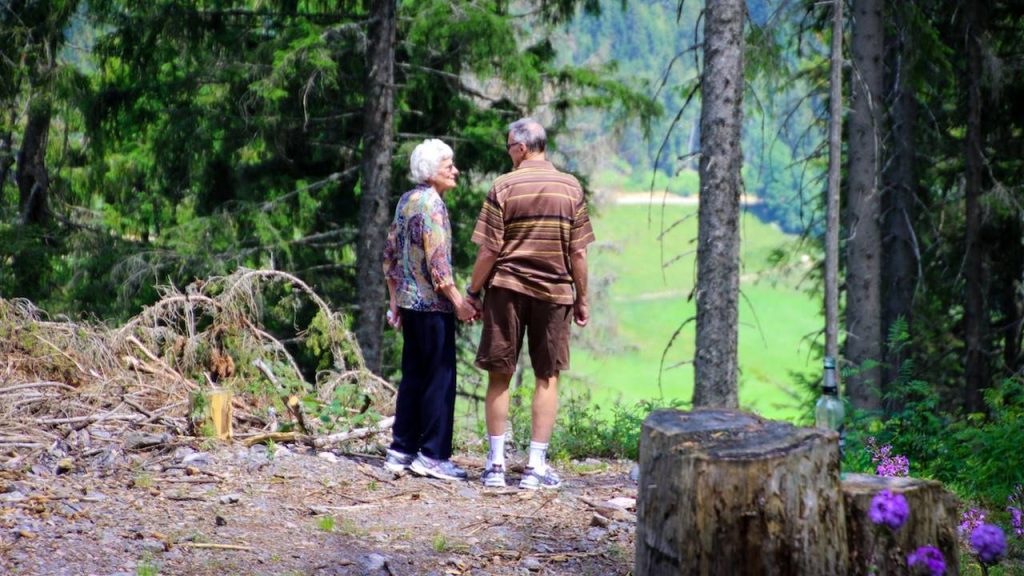Whether it’s after a flu, bronchitis, or bladder infection, older people need more time to recover from an illness. We give you the best tips to achieve it.

After an illness it is normal to go through a period of recovery or convalescence. In older people this phase can be longer and heavier after a flu, pneumonia or a urinary infection, for example. Measures should be taken to restore strength, physical health and morale after this period of illness.
6 STEPS TO REGAIN STRENGTH AFTER AN ILLNESS
During days of bed rest, muscles degenerate rapidly, appetite is lost and mood is touched. On the road to recovery, older patients should pay attention to some measures that can accelerate the return to normal health. But it is not as important to shorten the time as to strengthen the whole organism.
1. GIVE THE BODY TIME TO REGENERATE
Whether in the bronchi, bladder or intestines, repair and regeneration processes take place throughout the body after overcoming an illness. It is a cleaning job that consumes energy.
The older the affected person, the more time is required. To truly overcome an infection, it can take six to eight weeks, with or without antibiotics. Therefore, older people must be urged to be patient. Feeling very weak or dizzy when you get up is completely normal at first after leaving a health problem and you should not be overwhelmed by it.
2. SUPPORT YOUR RECOVERY
They may be helpful in recovering:
- Sucking lozenges with hyaluronic acid or Icelandic moss that keep the mucus moist. You also have to drink enough.
- Inhale essential oils (such as eucalyptus) or pure water vapor, as it helps relieve irritated airways and bronchi.
- Donutes are also helpful even after the symptoms of sinus infection have disappeared.
- Coconut lip balm with lemon balm protects against cold sores in the mouth.
- Vitamin supplements and protein drinks provide nutrients if you eat too little.
- Probiotic capsules strengthen the microbiota, reduce inflammation and stabilize the intestinal mucosa after taking antibiotics.
3. GET OUT OF BED
Staying in bed is not the most desirable. Older patients quickly lose muscle mass if they remain bedridden. Strict bed rest can be compared to weightlessness. People over the age of 75 lose up to 1.5 kilograms of muscle mass in ten days. This extreme loss is why a flu or prolonged infection can lead to permanent fragility.
4. EXERCISE TO PREVENT MUSCLE BREAKDOWN
So as soon as possible get out of bed. Even if it costs you a lot, and if you only go to the dining table three times a day, at first that’s better than nothing.
Lying down for prolonged periods also weakens the respiratory muscles. The shallower the breath, the less oxygen reaches the tissues. So, get back to normal as soon as possible, not with strenuous sport, but with smooth movement.
For physical recovery it is important that the diet is correct. Experts advise eating a balanced diet throughout the day, even if you do not have an appetite. Protein-rich foods, such as eggs or legumes, are particularly important now.
Extensive tests or lab checks aren’t usually necessary unless you continue to feel very weak and not better after six weeks. If body weight decreases, it is necessary to consult your doctor.
5. TRY TO DO THINGS WITH OTHER PEOPLE
For many older people, being physically exhausted for a long time also means sinking into mental depression. Luckily, some older people have enough basic congianza to help them survive such a crisis.
Others, on the other hand, fall into a deep hole. Grief, worries, but also the fear of not recovering keep them stuck in the disease. They lose the motivation to get up again, to eat, to participate again in life. Just a few steps can help them out of the depths.
Mentally challenging yourself and seeking social contacts can encourage you again. For the next day, for example, make it a point to go to the bakery. The walk, with the shopping list in your head, the conversation in the store, are a good start.
6. DAYDREAM: IMAGINE WHAT YOU’LL DO IN THE NEAR FUTURE
- Stay realistic. You don’t have to imagine a big trip, first formulate small goals: dare to go outside or to the park or invite your grandchildren for tea.
- Create structure. Rituals, such as reading the newspaper every morning or having a cup of tea in the afternoon, help structure the day and counteract depressive moods.
- Accept help, it can do you a lot of good. Singles or widowers can ask for help from family, friends, or neighbors. It is a way to meet your needs and be in contact with other people.






